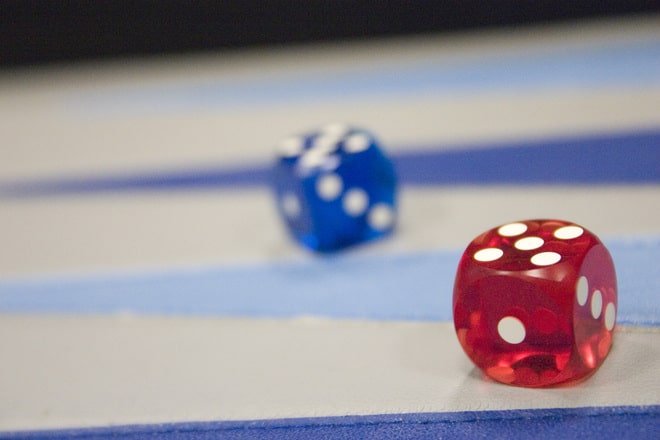On the August 19 episode of The Final Word, Abby Hughes spoke with Tanya Pobuda, who studies board games. Pubuda has found that in addition to having less leisure time than men, women have less mental energy at the end of the day to spend on games. Plus, a sociology professor studying gender, work and family at the University of Toronto adds the context of gendered division of labour outside of this niche board gaming group.
Tanyna Pobuda has always loved board games. They’ve spent many hours playing them, collecting them and hanging out in shops that sell them. Focusing their PhD research at TMU on analog games is the latest way they’re pursuing the activity.
Specifically, Pobuda dedicated their dissertation research to exploring the intersections of gender, race and analog gaming. What they found was that men had more leisure time which could be used for board gaming than their female counterparts.
Pobuda completed this research digitally, distributing the survey on a number of social sites.
“I did a pretty extensive recruiting exercise as part of my doctoral research,” said Pobuda. They said the study focused on “dedicated enthusiasts”, most of whom said they played board games at least once a week. In this context, board games includes card games, coin games and most non-digital games.
The study included online surveys as well as interviews. Overall, Pobuda found that time was a big factor for all respondents. 74 per cent of respondents, regardless of gender, said they’d take part in board games more often if they had more free time.
In the interview portion, the gendered aspect of board gaming became clearer. A number of women reported feeling so taxed at the end of their day from working and taking care of children that they said they didn’t have the energy to partake in mentally-stimulating board games.
“One interview participant talks about the fact that she’s got a business that she runs on the side and she works full time,” said Pobuda. “She has young children and she talks about being so fatigued by having to always play games with her kids. It can be very taxing at the end of a long day with lots of things to juggle.”
“She’s so tired at the end of the day that it can be very, very daunting to start a complex new game.”
Board games can be quite time consuming. Steep learning curves and large up-front investments in set up can make it difficult to integrate the hobby into a busy life.
This same participant addressed a common stereotype that women don’t enjoy “heavy” games, ones that might last many hours or require knowledge of more complex, extensive rules.
“This is a frustration for a lot of the folks that I spoke to in the research,” said Pobuda. “Part of the discourse is that women just like ‘light’ games or women like ‘party’ games. What she’s confronting, and what a lot of the people I spoke to confront, is no, it’s not that at all. It’s that we have more responsibility to childcare, to household responsibilities, we’re often working multiple jobs. We can’t engage with heavy games because we lack the leisure time that other identities might have.”
In their other research, Pobuda has identified that the boardgaming space is extremely white, middle class and male. Marginalized respondents said that this made entering board gaming spaces all the more difficult because they knew they wouldn’t see others that looked like them.
Pobuda says the fallacy that women don’t like heavy games creates a feedback loop that keeps women, and other equity seeking groups, out of the board gaming space altogether.
According to Melissa Milkie, a professor at the University of Toronto who studies gender, work and family roles, the trends that Pobuda found in their research aren’t isolated to board games. Milkie says that men do, in general, have more time than women.
And while there’s no gender research yet that backs up Pobuda’s findings that women are more tired at the end of the day than men, Milkie says that looking at the quality of leisure time, in addition to the quantity, is very important.
“One way to think about the quality is whether it’s interrupted or in longer bouts, assuming people might want longer bouts of leisure where they’re uninterrupted,” said Milkie. “We also have looked at who’s with people when they do leisure. Is it friends? Is it family members, as in children?”
“The question of what leisure counts as quality leisure is really important.”
Want more? Listen to the full The Final Word from August 19 on Soundcloud, or wherever you listen to podcasts.









